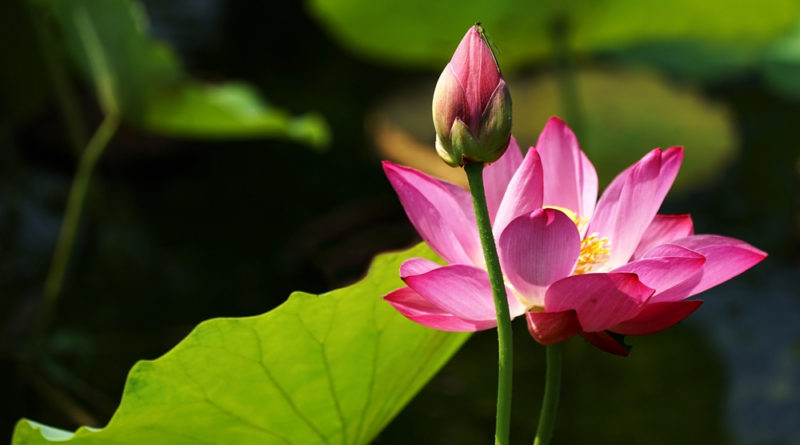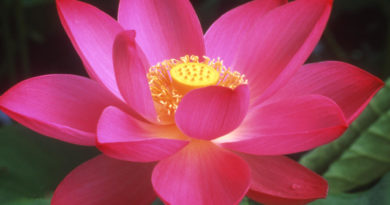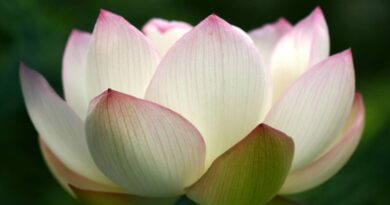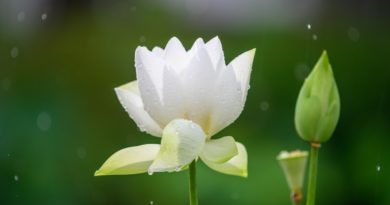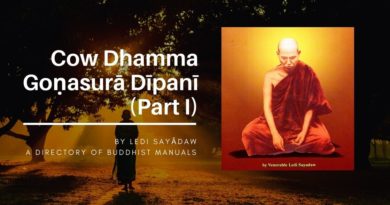HANDBOOK FOR MANKIND – 7. INSlGHT, BY THE NATURE METHOD
HANDBOOK FOR MANKIND – 7. INSlGHT, BY THE NATURE METHOD
In this chapter we shall see how concentration may come about naturally on the one hand, and as a result of organized practice on the other. The end result is identical in the two cases: the mind is concentrated and fit to be used for carrying out close introspection. One thing must be noticed, however: the intensity of concentration that comes about naturally is usually sufficient and appropriate for introspection and insight, whereas the concentration resulting from organized training is usually excessive, more than can be made use of. Furthermore, misguided satisfaction with that highly developed concentration may result. While the mind is fully concentrated, it is likely to be experiencing such a satisfying kind of bliss and well- being that the meditator may become attached to it, or imagine it to be the Fruit of the Path. Naturally occurring concentration, which is sufficient and suitable for use in introspection, is harmless, having none of the disadvantages inherent in concentration developed by means of intensive training.
In the Tipitaka, there are numerous references to people attaining naturally all states of Path and Fruit. This generally came about in the presence of the Buddha himself but also happened later with other teachers. These people did not go into the forest and sit, assiduously practicing concentration on certain objects in the way described in later manuals.
Clearly no organized effort was involved when arahantship was attained by the first five disciples of the Buddha on hearing the Discourse on Non – selfhood, or by the one thousand hermits on hearing the Fire Sermon. In these cases, keen, penetrating insight came about quite naturally. These examples clearly show that natural concentration is liable to develop of its own accord while one is attempting to understand clearly some question, and that the resulting insight, as long as it is firmly established must be quite intense and stable. It happens naturally, automatically in just the same way as the mind becomes concentrated the moment we set about doing arithmetic. Likewise in firing a gun, when we take aim, the mind automatically becomes concentrated and steady. This is how naturally occurring concentration comes about. We normally overlook it completely because it does not appear the least bit magical, miraculous, or awe inspiring. But through the power of just this naturally occurring concentration, most of us could actually attain liberation. We could attain the Fruit of the Path, Nirvana, arahantship, just by means of natural concentration.
So don’t overlook this naturally occurring concentration. It is something most of us either already have, or can readily develop. We have to do everything we can to cultivate and develop it, to make it function perfectly and yield the appropriate results, just as did most of the people who succeeded in becoming arahants, none of whom knew anything of modern concentration techniques.
Now let us have a look at the nature of the states of inner awareness leading up to full insight into “the world,” that is, into the five aggregates. The first stage is joy (piti), mental happiness or spiritual well being. Doing good in some way, even giving alms, considered the most basic form of merit-making, can be a source of joy. Higher up, at the level of morality, completely blameless conduct by way of word and action brings an increase in joy. Then in the case of concentration, we discover that there is a definite kind of delight associated with the lower stages of concentration.
This rapture has in itself the power to induce tranquillity. Normally the mind is quite unrestrained, continually falling slave to all sorts of thoughts and feelings associated with enticing things outside. It is normally restless, not calm. But as spiritual joy becomes established, calm and steadiness are bound to increase in proportion. When steadiness has been perfected, the result is full concentration. The mind becomes tranquil, steady, flexible, manageable, light and at ease, ready to be used for any desired purpose, in particular for the elimination of the defilements.
It is not a case of the mind’s being rendered silent, hard and rocklike. Nothing like that happens at all. The body feels normal, but the mind is especially calm and suitable for use in thinking and introspection. It is perfectly clear, perfectly cool, perfectly still and restrained. In other words, it is fit for work, ready to know. This is the degree of concentration to be aimed for, not the very deep concentration where one sits rigidly like a stone image, quite devoid of awareness. Sitting in deep concentration like that, one is in no position to investigate anything. A deeply concentrated mind cannot practice introspection at all. It is in a state of unawareness and is of no use for insight. DEEP CONCENTRATION IS A MAJOR OBSTACLE TO INSIGHT PRACTICE. To practice introspection one must first return to the shallower levels of concentration; then one can make use of the power the mind has acquired. Highly developed concentration is just a tool. In this developing of insight by the nature method, we don’t have to attain deep concentration and sit with the body rigid. Rather, we aim at a calm, steady mind, one so fit for work that when it is applied to insight practice, it gains right understanding with regard to the entire world. Insight so developed is natural insight, the same sort as was gained by some individuals while sitting listening to the Buddha expounding Dhamma. It is conducive to thought and introspection of the right kind, the kind that brings understanding. And it involves neither ceremonial procedures nor miracles.
This doesn’t mean, however, that insight will arise instantaneously. One can’t be an arahant straight off. The first step in knowledge may come about at any time, depending once again on the intensity of the concentration. It may happen that what arises is not true insight, because one has been practicing wrongly or has been surrounded by too many false views. But however it turns out, the insight that does arise is bound to be something quite special, for instance extraordinarily clear and profound. If the knowledge gained is right knowledge, corresponding with reality, corresponding with Dhamma, then it will progress, developing ultimately into right and true knowledge of all phenomena. If insight develops in only small measure, it may convert a person into an Aryian at the lowest stage; or if it is not sufficient to do that, it will just make him a high- minded individual, an ordinary person of good qualities. If the environment is suitable and good qualities have been properly and adequately established, it is possible to become an arahant. It all depends on the circumstances. But however far things go, as long as the mind has natural concentration, this factor called insight is bound to arise and to correspond more or less closely with reality. Because we, being Buddhists, have heard about, thought about and studied the world, the five aggregates and phenomena, in the hope of coming to under stand their true nature, it follows that the knowledge we acquire while in a calm and concentrated state will not be in any way misleading. It is bound to be always beneficial.
The expression “insight into the true nature of things” refers to seeing transience, unsatisfactoriness and non-selfhood, seeing that nothing is worth getting, nothing is worth being, seeing that no object whatsoever should be grasped at and clung to as being a self or as belonging to a self, as being good or bad, attractive or repulsive. Liking or disliking anything, even if it is only an idea or a memory, is clinging. To say that nothing is worth getting or being is the same as to say that nothing is worth clinging to. “Getting” refers to setting one’s heart on property, position, wealth, or any pleasing object. “Being” refers to the awareness of one’s status as husband, wife, rich man, poor man, winner, loser, or human being, or even the awareness of being oneself. If we really look deeply at it, even being oneself is no fun, is wearisome, because it is a source of suffering. If one can completely give up clinging to the idea of being oneself, then being oneself will no longer be suffering. This is what it is to see the worthlessness of being anything, and is the gist of the statement that being anything, no matter what, is bound to be suffering in a way appropriate to that particular state of being. Any state of being, if it is to continue as such, has to be made to last, to endure. At the very least, it must endure in one’s mind in the form of a belief in that particular state of being. When there exists “oneself,” there are bound to exist things which are other than that self and belong to it. Thus one has one’s children, one’s wife, one’s this, that and the other. Then one has one’s duty as husband or wife, master or servant, and so on. All this points to the truth of the statement that there is no state of being such that to maintain it will not involve struggle. The trouble and struggle necessary to maintain one’s state of being are simply the result of blind infatuation with things, of clinging to things. If we were to give up trying to get or to be anything, how could we continue to exist? This is bound to be a major source of skepticism for anyone who has not given much thought to the matter. The words “getting” and “being” as used here refer to getting and being based on mental defilements, on craving, on the idea of “worth getting, worth being,” so that the mind does get and be in real earnest. This is bound to lead to depression, anxiety, distress and upset, or at least a heavy burden on the mind, right from beginning to end. Knowing this truth, we shall be constantly on the alert, keeping watch over the mind to see that it doesn’t fall slave to getting and being through the influence of grasping and clinging. Aware that in reality things are just not worth getting or being, we shall be smart enough to stay aloof from them.
If, however, we are not yet in a position to withdraw completely from having and being, we must be mindful and wide awake, so that when we do get or become something, we do so without emotional upset. We must not be like those people who, turning a blind eye and a deaf ear, go ahead brainlessly and inexpertly getting or becoming, with the result that they fall right into the pit of their own stupidity and attachment, and end up having to commit suicide.
The world and all things have the property of impermanence, of worthlessness and of not belonging to anyone. Any individual who grasps at and clings to anything will be hurt by it, in the very beginning when he first desires to get it or to be it, later while he is in the process of getting it and being it, and then again after he has got it or been it. All the time, before, during and after, when anyone grasps and clings with deaf ear and blind eye, he will receive his full measure of suffering, just as can be seen happening to all deluded worldlings. It is the same even with goodness, which everyone values highly. If anyone becomes involved with goodness in the wrong way and clings to it too much, he will derive just as much suffering from goodness as he would from evil. In becoming involved with goodness, we have to bear in mind that it possesses this property.
A skeptic may ask: “If nothing at all is worth getting or being, does it follow that nobody ought to do any work or build up wealth, position and property?” Anyone who comprehends this subject can see that a person equipped with right knowledge and understanding is actually in a far better position to carry out any task than one who is subject to strong desires, foolish, and lacking in understanding. Very briefly, in becoming involved in things, we must do so mindfully; our actions must not be motivated by craving. The result will follow accordingly.
The Buddha and all the other arahants were completely free of desire, yet succeeded in doing many things far more useful than what any of us are capable of. If we look at accounts of how the Buddha spent his day, we find that he slept for only four hours and spent all the rest of the time working. We spend more than four hours a day just amusing ourselves. If the defilements responsible for the desire to be and get things had been completely eliminated, what was the force that motivated the Buddha and all Arahants to do all this? They were motivated by discrimination coupled with goodwill (metta). Even actions based on natural bodily wants such as receiving and eating alms food were motivated by discrimination They were free of defilements, free of all desire to keep on living in order to be this or to get that, but they did have the ability to discriminate between what was worthwhile and what was not as the motivating force that sent their bodies out to find food. If they found food, well and good; if not, never mind. When they were suffering with fever, they knew how to treat it and did so as well as possible on the basis of this knowledge. If the fever was quite overpowering and they were not strong, they recalled that to die is natural. Whether they lived or died was of no significance to them; they were of equal value in their eyes
If one is to be completely free of suffering, this is the very best attitude to have. There need not be any self as master of the body. Discrimination alone enables the body to carry on by its natural power. The example of the Buddha shows that the power of pure discrimination and pure goodwill alone is sufficient to keep an arahant living in the world, and, what is more, doing far more good for others than people still subject to craving. Defiled people are likely to do only what benefits themselves since they act out of selfishness. By contrast, the deeds of arahants are entirely selfless and so are perfectly pure. In desiring to get and be, one is acting quite inappropriately, one is mistaking evil for good, not knowing what is what. Let us all, then, go about things intelligently, always bearing in mind that, in reality, nothing is worth getting or being, nothing is worth becoming infatuated with, nothing is worth clinging to. Let us act in a manner in keeping with the knowledge that things are by their very nature not worth getting or being. If we do have to become involved in things, then let us go about it the right way, acting appropriately. This is the way to keep the mind always pure, unobscured, tranquil and cool. It allows us to become involved in the world, in things, without doing ourselves any harm in the process. When the ordinary worldly man hears that nothing is worth getting or being, he is not convinced, he doesn’t believe it. But anyone who understands the real meaning of this statement becomes emboldened and cheered by it. His mind becomes master of things and independent of them. He becomes capable of going after things sure in the knowledge that he will not become enslaved by them. His actions are not motivated by desire and he is not so blind with passion that he comes to be a slave to things. In getting anything or being anything, let us always be aware that we are getting or being something which, in terms of absolute truth, we cannot get or be at all, because there is nothing that we can really get or be as we might wish. All things are transient and unsatisfactory and can never belong to us; and yet we go foolishly ahead, grasping at them and craving for them. In other words, we act inappropriately, or in a way which does not accord with the true nature of things, simply because we become involved in them while ignorant of their true nature. The result is bound to be all manner of suffering and trouble. The reason a person is incapable of doing his job perfectly, faultlessly, is that he is always far too concerned with getting something and being something, always motivated entirely by his own desires. As a result, he is not master of himself and cannot be consistently good, honest and fair. In every case of failure and ruin, the root cause is slavery to desire. To come to know the true nature of things is the true objective of every Buddhist. It is the means by which we can liberate ourselves. Regardless of whether we are hoping for worldly benefits, such as wealth, position and fame; or for benefits in the next world, such as heaven; or for the supra-mundane benefit, the Fruit of the Path, Nirvana–whatever we are hoping for, the only way to achieve it is by means of this right knowledge and insight. We thrive on insight. In the Texts it is said that we may become purified through insight and not by any other means. Our path to freedom lies in having the insight, the clear vision, that in all things there neither is nor has ever been anything at all that is worth grasping at or clinging to, worth getting or being, worth risking life and limb for. We have things and are things only in terms of worldly, relative truth. In worldly language, we say we are this or that, just because in any society it is expedient to recognize by names and occupations. But we mustn’t go believing that we really are this or that, as is assumed at the level of relative truth. To do so is to behave like the crickets, which, when their faces become covered with dirt, become disoriented and muddled, and proceed to bite each other until they die. We humans, when our faces become covered in dirt, when we are subject to all sorts of delusions, become so bewildered and disoriented that we do things no human being could ever do under ordinary circumstances–killing for instance. So let us not go blindly clinging to relative truths; rather let us be aware that they are just relative truths, essential in a society but nothing more. We have to be aware of what this body and mind really is, what its true nature is. In particular, we have to be aware of its impermanence, unsatisfactoriness, and non-selfhood, and make sure we always remain independent of it.
As for the wealth, position and so on, which we can’t do without, let us regard these too as relative truths so that we can break free from the existing custom of saying, for instance: “This belongs to So – and – so. That belongs to Such and – such.” The law watches over ownership rights for us; there is no need for us to cling to the idea of “mine.” We ought to possess things purely and simply for the sake of convenience and ease, and not so that they can be master over our minds. When we have this clear knowledge, things will become our servants and slaves and we shall remain on top of them. If our thoughts go the way of craving and attachment, so that we become conscious of having such – and – such and being so – and – so, clinging firmly to these ideas, things will get on top of us, and we shall be the servants and slaves, under their control instead. The tables can quite easily be turned in this way, so we have to be careful. We have to arrange things in such a way that we are sure of staying independent and on top of things. If we don’t, we may find ourselves in a most pitiable position and feel very sorry for ourselves indeed. When we have really come to perceive clearly that nothing is worth getting or being, disenchantment (nibbida) develops in proportion to the intensity of the insight. It is a sign that the clinging has become less firm and is starting to give way. It is a sign that we have been slaves for so long that the idea of trying to escape has at last occurred to us. This is the onset of disenchantment and disillusionment, when one becomes fed up with one’s own stupidity in grasping at and clinging to things, believing things to be worth having and being. As soon as disenchantment has set in, there is bound to come about a natural, automatic process of disentanglement (vimutti), as if a rope with which one had been tightly bound were being untied; or a rinsing out, as when the dye that had been firmly fixed in a piece of cloth is washed out by soaking it in the appropriate substances. This process whereby clinging gives way to a breaking free from, or a dissolving out from the world, or from the objects of that clinging, was called by the Buddha, emancipation (vimutti). This state is most important. Though not the final stage, it is a most important step towards complete liberation. When one has broken free to this extent, complete liberation from suffering is assured.
Once broken free from slavery, one need never again be a slave to the world. One becomes pure and uncontaminated whereas previously one was defiled in every way. To be enslaved to things is to be defiled in body, speech and thought. To break free from slavery to the delightful tastes of the world is to achieve the pure condition and never be defiled again. This real purity (Visuddhi), once it has been attained, will give rise to a genuine calm and coolness free from all turbulence, strife and torment. This state of freedom from oppression and turbulence was called by the Buddha simply peace (Santi), that is, stillness, coolness in all situations, which is virtually the same thing as Nirvana.
“Nirvana” has been translated as “absence of any instrument of torture.” Taken another way, it means “extinction without remainder.” So the word “Nirvana” has two very important meanings; firstly, absence of any source of torment and burning, freedom from all forms of bondage and constraint and secondly, extinction, with no fuel for the further arising of suffering. The combination of these meanings indicates a condition of complete freedom from suffering. There are several other useful meanings for the word “Nirvana.” It can be taken to mean the extinction of suffering, or the complete elimination of defilements, or the state, realm, or condition that is the cessation of all suffering, all defilements and all karmic activity. Though the word “Nirvana” is used by numerous different sects, the sense in which they use it is often not the same at all. For instance, one group takes it to mean simply calm and coolness, because they identify Nirvana with deep concentration. Other groups even consider total absorption in sensuality as Nirvana.
The Buddha defined Nirvana as simply that condition of freedom from bondage, torment and suffering which results from seeing the true nature of the worldly condition and all things, and so being able to give up all clinging to them. It is essential, then, that we recognize the very great value of insight into the true nature of things and endeavor to cultivate this insight by one means or another. Using one method, we simply encourage it to come about of its own accord, naturally, by developing, day and night, the joy that results from mental purity, until the qualities we have described gradually come about. The other method consists in developing mental power by following an organized system of concentration and insight practice. This latter technique is appropriate for people with a certain kind of disposition, who may make rapid progress with it if conditions are right. But we can practice the development of insight by the nature method in all circumstances and at all times just by making our own way of daily living so pure and honest that there arise in succession spiritual joy (piti and pamoda), calm (passaddhi), insight into the true nature of things (yathabhutananadassana), disenchantment (nibbida), withdrawal (viraga), escape (vimutti), purification from defilements (visuddhi), and coolness (santi), so that we come to get a taste of freedom from suffering (nibbana)- steadily, naturally, day by day, month by month, year by year, gradually approaching closer and closer to Nirvana.
Summing up, natural concentration and insight, which enable a person to attain the Path and the Fruit, consist in verifying all day and every day the truth of the statement that nothing is worth getting or being. Anyone who wishes to get this result must strive to purify himself and to develop exemplary personal qualities, so that he can find perpetual spiritual joy in work and leisure. That very joy induces clarity and freshness, mental calm and stillness, and serves, naturally and automatically, to give the mind ability to think and introspect. With the insight that nothing is worth getting or being constantly present, the mind loses all desire for the things it once used to grasp at and cling to. It is able to break free from the things it used to regard as “me and mine,” and all blind craving for things ceases. Suffering, which no longer has anywhere to lodge, dwindles right away, and the job of eliminating suffering is done. This is the reward, and it can be gained by anyone of us.

